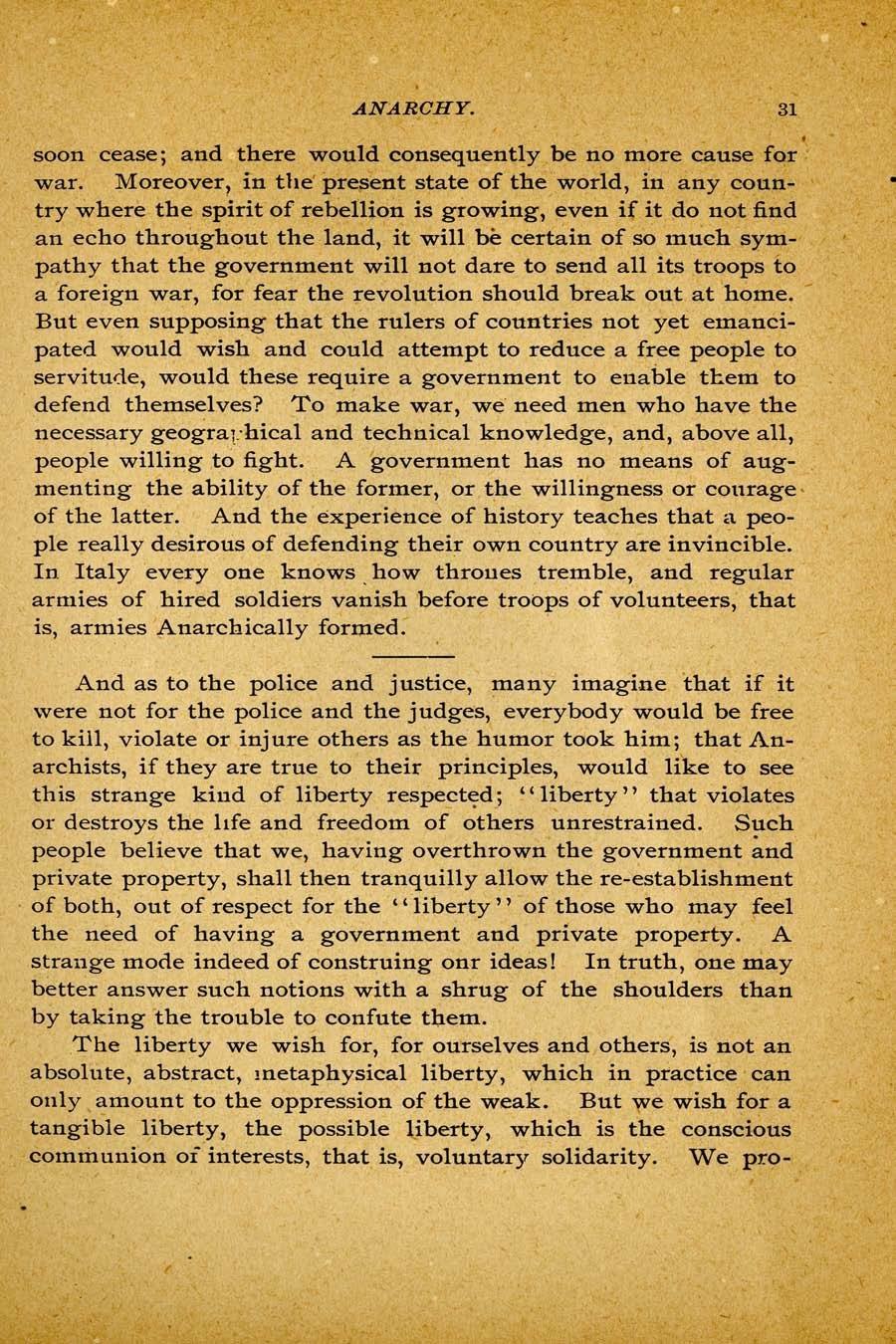soon cease; and there would consequently be no more cause for war. Moreover, in the present state of the world, in any country where the spirit of rebellion is growing, even if it do not find an echo throughout the land, it will be certain of so much sympathy that the government will not dare to send all its troops to a foreign war, for fear the revolution should break out at home. But even supposing that the rulers of countries not yet emancipated would wish and could attempt to reduce a free people to servitude, would these require a government to enable them to defend themselves? To make war, we need men who have the necessary geographical and technical knowledge, and, above all, people willing to fight. A government has no means of augmenting the ability of the former, or the willingness or courage of the latter. And the experience of history teaches that a people really desirous of defending their own country are invincible. In Italy everyone knows how thrones tremble, and regular armies of hired soldiers vanish before troops of volunteers, that is, armies Anarchically formed.
And as to the police and justice, many imagine that if it were not for the police and the judges, everybody would be free to kill, violate or injure others as the humor took him; that Anarchists, if they are true to their principles, would like to see this strange kind of liberty respected; "liberty" that violates or destroys the life and freedom of others unrestrained. Such people believe that we, having overthrown the government and private property, shall then tranquilly allow the re-establishment of both, out of respect for the "liberty" of those who may feel the need of having a government and private property. A strange mode indeed of construing our ideas! In truth, one may better answer such notions with a shrug of the shoulders than by taking the trouble to confute them.
The liberty we wish for, for ourselves and others, is not an absolute, abstract, metaphysical liberty, which in practice can only amount to the oppression of the weak. But we wish for a tangible liberty, the possible liberty, which is the conscious communion of interests, that is, voluntary solidarity. We pro-
